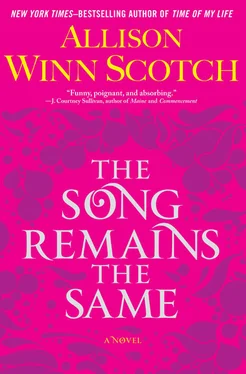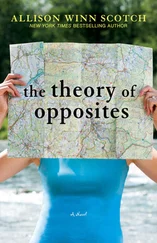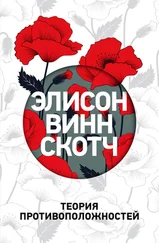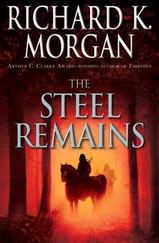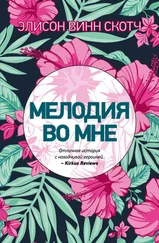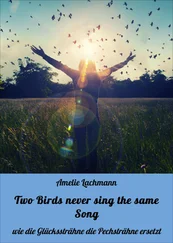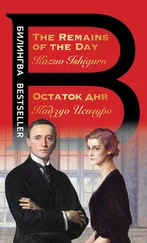“It’s not the change that is the most difficult,” I say. “The change is actually the best part about it. It’s the constant surprises. Like these paintings I found of mine. Or the playlist— The Best of Nell Slattery .”
“ The Best of Nell Slattery ?”
“My sister made a playlist, filled with all the bands of my old life. I guess I took music pretty seriously for a while there.” I reach for the iPod on the coffee table, scrolling through its files. “Did you know that I was named for a Beatles song?” I flick my chin toward her notes. “Is that in there? That my father insisted on naming me for a Beatles song that’s about the loneliest woman in the world?”
“No, that’s not in my file.” Her eyes are kind when she says this.
I answer her by pressing play, the living room echoing with Paul McCartney.
“Eleanor Rigby died in a church and was buried along with her name. Nobody came.”
I hit stop. Enough to make my point.
“My sister put the song on there, on the playlist. And I listen to it, and I just think, What sort of parent would do this to a child? Like, what’s the weight of that inheritance?” I smile, despite myself. “My mom swears that this isn’t entirely true—that yes, he loved the song, but mostly, he loved the name, but still. Even the idea, even the instinct to maybe pay an homage to this woman—Eleanor Rigby—well, no wonder I didn’t love my life.”
“So you didn’t love your life?”
I set the iPod back down. “No, that’s probably too strong a statement. I don’t even know if I loved my life. But all signs are pointing toward no. Toward the fact that I was moving through it, not”—I pause, considering—“not embracing it, I guess.”
“And, to bring this back to the state of constant surprise, this discovery has unsettled you?”
“The discovery about the song that named me or the discovery about my sad-sack life?”
“Whichever.” She flips up the palm of her hand.
“Well, mostly it makes me wonder what else he’s done. What other surprises there are, that’s all. Like, if I can’t understand where I came from, how can I anticipate what else there is?”
“The weight of your inheritance,” she says, writing something down. “The famous father, the expectations of you.”
“All of that,” I say, watching her scribble.
“And how does this make you feel? Angry, resentful, sad?”
I suck on the inside of my cheek and stare out the living room window. There’s a siren whirling from somewhere down below that I only just now notice. The sky is overcast, ominous-looking, a warning that summer won’t last forever, and a helicopter cuts through the clouds, there for a moment, then out of sight.
“I guess mostly it makes me feel lost. Though that’s not particularly revelatory. Take someone’s memory away and really, what’s left? I’m sure there is space for anger or sadness or whatever, but who knows what I really feel?” I inhale. “You know, it’s strange for me to be talking to you. Because we’re really more or less strangers, although you’ve read my file. You know a lot about me.”
“I know about as much about you as you know about you,” she says. “Which is to say, what can be written down in a file.”
“Not the important stuff,” I offer.
“No, not the important stuff.” She agrees.
“I would maybe feel a little bit more at ease if I knew something about you, too.”
She smiles. “That’s not really how this works, Nell.”
“One thing,” I say. “One thing so it won’t feel so obvious that I’m sitting here talking to a shrink. That I might be talking to an old friend, someone who has known me forever.” I gesture to her pants. “You have a dog.”
She hesitates for a moment. “I do. A yellow Lab.”
“Tell me one thing you like to do with your dog. That’s it. One thing so I can picture it and think of you as a person, and that will be that.”
She inhales, debating it. “Fine, fair enough. On the weekends, I like to take him early to the dog run, the one over here by the museum. I sit and read the paper, and we don’t leave until I’ve read every last section. We both love it.”
I envision it: her in a dog run in my neighborhood that I can’t remember but is there all the same. I can see her in a tank top and shorts, folding over her crinkling paper, her dog at her feet. Like any friend of mine might do, not a hospital-issued therapist who is here to help me prove that the wires of my mind haven’t permanently misfired.
“Thank you,” I offer.
She nods. “So…do you want to talk more about your weekend or just go ahead with the free association?”
“How about if I start with a combination of them both, if I throw some free association words out to you about the weekend. For starters: awkward —that one was from when I opened the door on Peter, naked, just getting out of the shower; infuriating —that one was from when I realized that my mom knew about the house I remembered and didn’t admit it; reverential —that one was from when I sat in the dining room and stared at my father’s portrait of my mother that still hangs over the buffet and realized just how goddamn good he was. And that part was also heartbreaking —that I can’t remember him, and…well also, there was creepy —that my mom has her own portrait, drawn by her ex-husband, in her dining room.”
Liv smiles sympathetically. “And maybe a little indulgent.”
“My mother is nothing if not indulgent. Not at all like me.”
“Not at all like you?”
“What’s the opposite of indulgent ?” I ask, searching for the word, my eyes floating up to the ceiling.
“ Austere ?” she suggests.
I let it sink in, see if it sticks, resonates.
“You think I was austere?” I say, really more to myself than to her.
“I didn’t know you then. I only know what you’ve told me. You’ve mentioned this in one of our early sessions—how different you and your mother are.”
I shake my head. I don’t remember saying this, though I may very well have.
“It’s a strange thing to focus on, don’t you think?” I ask. “That of the many things I could gravitate toward—of my failing marriage, of my miscarriage, of how lost I feel because of the amnesia—that I told you about my mom?”
“I won’t quote Freud here, but a lot of who we are is defined by our families,” Liv says. “Until we choose it not to be. If we can choose it not to be.”
“So you think it’s a choice, their influence, the way I intuitively react to my mom?”
“I think that everything that’s within our control is a choice,” she says.
“And what of the things that aren’t?” I don’t need to add in: like my brain, like my memory . “How do we choose when we can’t control them?” I sulk for a moment and stare at the clock on the cable box.
“That’s not my question to answer,” she says after a beat. “That’s yours.”
The last word that Liv had asked me to explore in our free association exercise, to throw whatever thoughts against the wall, was love, and for reasons that I still can’t explain several hours later when Peter has come through the door, I answered, “Beige.” And then I started laughing—cackling really, because “beige,” in the context of love, makes absolutely no sense. Until Liv let the air hover between us, silence clinging to the walls in the living room, and suddenly it made too much sense, and then gobsmacked me like a tsunami of depression that “beige” is how I would describe love.
Once I started to cry, really, really purging my guts out bawling, Liv interjected, offering me a tissue and asking what about my answer had made me so very sad.
Читать дальше
